From The Economist
Should a fair country allow citizens to be treated differently based on the colour of their skin? Most people would say that it should not. But others insist that it should—if the ends are suitably enlightened.
Not long after America dismantled two centuries of slavery and segregation, it embarked on a project of “affirmative action”: a system of legally sanctioned positive discrimination for African-Americans (later expanded to other “under-represented minorities”) who sought entry to selective universities. At the time the affront to liberal norms of fairness and equality under the law was assuaged by the fact that the beneficiaries of the policy were oppressed not long ago. Yet after half a century, one marked with more racial progress than setbacks, it remained the case that an applicant to America’s top universities with the right skin colour had a much better chance of admission than one with identical credentials but the wrong skin colour. On June 29th the Supreme Court terminated the scheme.
It was right to do so. That is because affirmative action rested on contorted constitutional logic. It was also broadly unpopular outside progressive circles. Worst of all, it only marginally ameliorated America’s yawning racial gaps. Despite the sermonising of its administrators, even with race-based affirmative action the country’s best universities never represented America. The very same universities offer extreme preferences to children of alumni and donors—a shadow, unjustifiable affirmative-action scheme for the white and wealthy hidden behind the prominent one for black and Hispanic applicants (a disproportionate share of whom were wealthy themselves).
The Supreme Court’s ruling will reverberate widely. “Eliminating racial discrimination means eliminating all of it,” wrote Chief Justice John Roberts in his majority opinion. This will surely encourage lawsuits to end racial preferences in other areas, such as government contracting. But the immediate impact will be on university admissions.
A touch of class
Something better can come out of the demise of the present regime. Start with the shaky legal justification for race-conscious college admissions. After the civil war, America’s constitution was amended to guarantee all of its citizens due process and equal protection under the law, regardless of their race. Yet for decades, under Jim Crow, many states prevented black people from voting, forbade inter-racial marriage and enforced racial segregation in schools, among other outrages. After the correction of the civil-rights era, America began to try to live up to its constitutional promise. It passed landmark civil-rights legislation that forbade unequal treatment “on the ground of race, colour, or national origin”.
Yet for decades the Supreme Court allowed positive discrimination in universities. How so? The policy was justified, the justices of the day argued, not as reparations for a terrible past, but because the value of diversity was compelling for promoting “cross-racial understanding and the breaking down of racial stereotypes”. It was always odd that affirmative action was explicitly crafted for the benefit of students’ white peers. Nonetheless elite universities leapt on the rationale of diversity, using it to construct racially balanced classes while suggesting that these were the happy result not of quotas, which are banned, but of “race-conscious” holistic admissions schemes that treated people as individuals and not as avatars for their racial group.
Contrary to the dissent of the court’s liberal justices, who claim the new ban “will serve only to highlight the court’s own impotence in the face of an America whose cries for equality resound”, Americans were not happy with the old policy. In 2020 even liberal Californians voted down a referendum to reinstate affirmative action, banned in the state since 1996. Polls show that many more Americans oppose taking race into account for admissions than favour it. That is true also of Asian Americans, who typically lean left but bear the heaviest cost of race-based admissions because they are deemed “over-represented” (despite suffering discrimination in their own right).
The court’s decision could be the catalyst for fairer admissions. The extraordinary benefits that Harvard and Yale shower upon the children of alumni and donors make a mockery of meritocracy and those institutions’ self-professed progressivism. Those practices should go.
Universities that wish to do their bit for social justice should stop using race as an (often inaccurate) proxy for disadvantage and start looking at disadvantage itself. Instead of giving a leg-up to members of groups that are on average badly off, they should favour individuals who are actually poor. One randomised controlled trial found that simply offering application-fee waivers to promising students from poor backgrounds dramatically increased the chance of their applying to, and attending, highly selective universities.
There is reason to worry that elite universities will seek stealthy ways to preserve racial preferences. Many are dropping requirements for standardised tests, which would make quiet discrimination against members of unfavoured groups who do well on such tests harder to detect. Some are busily searching for loopholes. In a letter sent to its students and alumni, Harvard, which was party to one of the Supreme Court cases, quoted a portion of the majority opinion that opens the door to considering race if an applicant were to write about it in a submitted essay. “We will certainly comply with the Court’s decision,” its leadership wrote, impishly.
Rather than coaxing a generation of minority students into drafting adversity statements—and continuing to admit the hereditary mediocracy through the backdoor—schools like Harvard would do well to try to craft a fairer system of admissions. These universities should not be proud of the well-monied (albeit multicoloured) monoculture they have inculcated. They should take the opportunity to become the progressive institutions they claim to be. ■
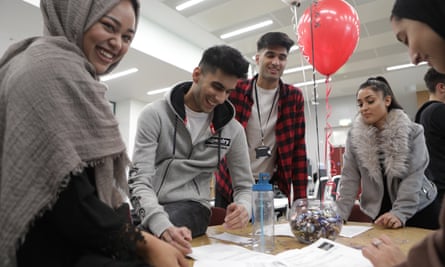
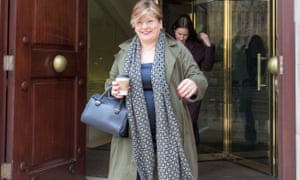



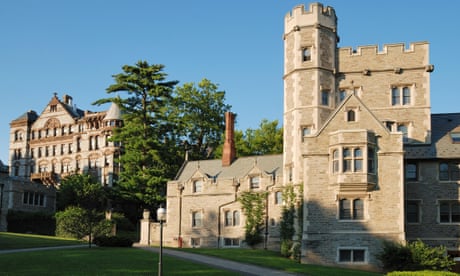



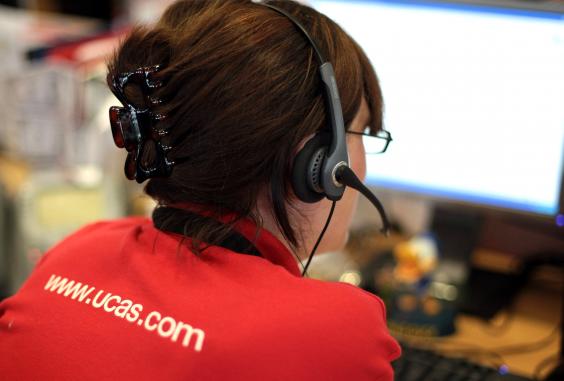
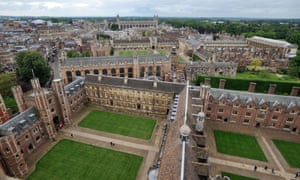
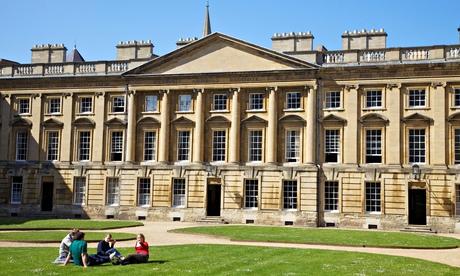
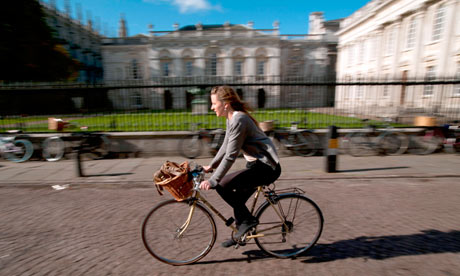


(This is to ignore the fact that if many applicants seek to play the numbers game then any perceived advantage will cease to exist and an applicant would have been better off applying to a college with a high number of applicants to places which, in the next year, will have fewer)
As with other guides for Oxbridge entrance, this one seems to have no basis in experience of what actually occurs. Having read all the books on the market, NONE of them give an accurate portrayal of the decision-making process.
As for the idea that schools have relationships with Colleges - this is at least twenty years out of date. The only schools which have an advantage are those which do not produce the bland pro forma references for applicants. Such references are entirely worthless.
This article isn't worth the server space it is hosted on.
Due to the pooling system, any attempts to 'play the game' when choosing colleges won't work.
The best advice? If you're good enough for Cambridge, apply to either a college that you really like, or a college with a good reputation in the pool.
Another New Hall friend of mine applied there because she actually likes the place. She is a very happy and active member of the college.
When I applied, I did all those stats for college, like the above article. My school teacher wanted to apply a certain college that I was not keen about, because he knows someone there. At the end, I didn't use these tricks. It's not just the 'getting-in Cambridge' part that is important; it's the 'three-years at Cambridge' part that is. So I went for the one I really liked and got in. It felt great to know that I got in because of my abilities, not what kind of tricks I used.
What happened? I got there on interview day to discover there was only one place on offer that year, and fourteen applicants for it... I wasn't the only one to have done the math and tried to game the system.
Yes, I got the place. But I hated the course and ended up switching to something else after just two weeks - arguably I would have been much better off at a bigger, less cliquey college.
I'd recommend you pick a subject you feel passionate about, that you've properly researched, at a college you feel most comfortable at.
To sum up, I believed those who do have the potential to be an oxbridge should just choose whichever they like. This article is quite futile and there is very little point to believe in what it says. TO THOSE WHO WANT TO APPLY OXBRIDGE: Just shows those interviewers that you are an interested person. BE YOURSELF.
The real star would always shine through the crowds.
My advice to anyone wanting to apply then, would be to do so, and to ignore all this nonsense. Picking a course and a college should be down to passion and gut feeling. Go to an open day, find a place you like, and apply. There is nothing to gain by trying to cheat the system, and ultimately, you'll only be cheating yourself out of what you want the most.
And it's Queens' with the apostrophe after the 's'. An apostrophe before the 's' is Oxford's Queen's College.
Moreover, as a Cambridge student myself, I should stress that choosing your college by what's least competitive is potentially foolish. Despite what you may have heard, not all colleges will suit everyone perfectly: there are many variances between colleges, including the Fellows' areas of expertise; you have to do your research to find out what (and who) suits you.
And anyway, who wants to spend three years of their lives at a college they chose because it seemed easier to get into? Where's the integrity in deliberately not going for what you feel is the best?
Another person selling his take on the supposedly secret knowledge behind getting to Oxbridge.
The reason why it more candidates get in to do history than social sciences may be that history is undersubscribed. Or it may be that the people applying to do history really want to do history and have got good scores at the right A levels. A bright student who is perfect for economics isnt magically going to improve her chances by applying to do history, if she has no interest in history and cant show a spark.
Improve your chances? go to the open days yourself (not your mum), talk to the tutors, do the A levels they tell you to do and learn to love your subject.
And dont waste any of your hard earned cash on any course that promises to sell you insider knowledge.